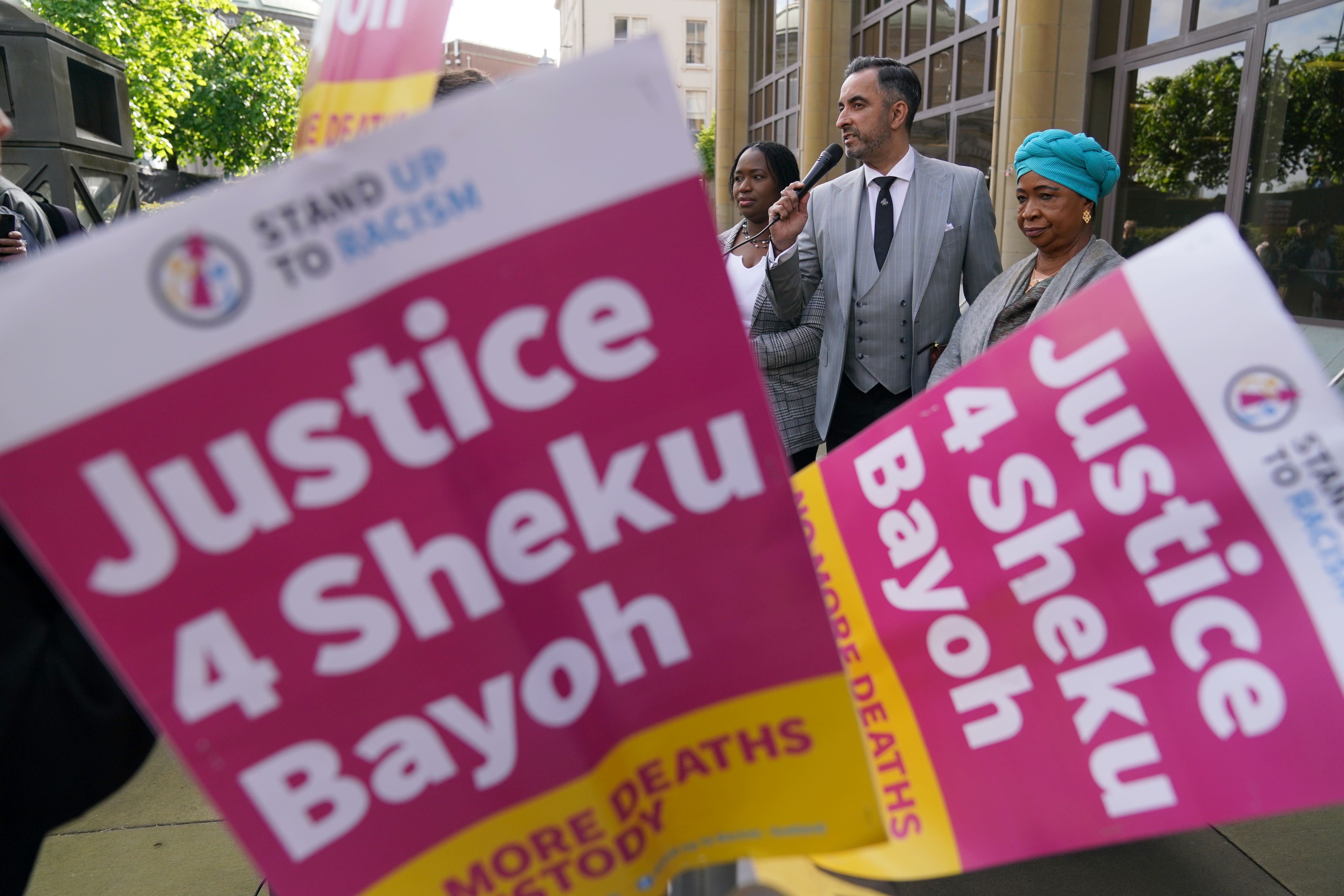Police statements soon after Sheku Bayoh death ‘inappropriate’, inquiry told
The 31-year-old father-of-two died after he was restrained on the ground by six police officers in Kirkcaldy, Fife, in May 2015.

A retired chief superintendent has told the Sheku Bayoh inquiry it would have been “wholly inappropriate” for police officers to have made statements shortly after his death.
His comments come in light of a Police Investigations and Review Commissioner (Pirc) member saying the senior policeman could have instructed officers to make a statement, despite legal advice not to.
Garry McEwan, who oversaw policing in Fife at the time of Mr Bayoh’s death on May 3 2015, told the inquiry that officers were under legal advice not to make any form of statement following the incident.
The 31-year-old father-of-two died after he was restrained on the ground by six police officers in Kirkcaldy, Fife.
If officers need a period of time to properly formulate in their head exactly what happened and to document that on paper, then give them the time and the space to do that
The inquiry is investigating the circumstances of his death and whether race was a factor.
On Wednesday, Mr McEwan was asked by Angela Grahame KC, senior counsel to the inquiry, if he had concerns over how the timing of statements could have affected the investigation into Mr Bayoh’s death.
He said: “They weren’t concerns, it was the reality of the fact which was that they had been given legal and/or independent (police) federation advice not to give statements.
“There is nothing that me or anyone else could do in that circumstance to make them.
“That wasn’t my role so it was a matter of fact that it was something for me that we just have to move on from.”
Ms Grahame followed up by asking if this is in accordance to how he would have acted.
He said his view on the matter is “giving the best evidence” and not the “fastest evidence”.
He added: “If officers need a period of time to properly formulate in their head exactly what happened and to document that on paper, then give them the time and the space to do that.
“Let’s not rush them into that position because, actually, what we want to get is the facts and the most coherent and comprehensive response.
“I am aware of occasions where there have been delays in police officers or police staff in giving statements and I have accepted that as the commander of the criminal justice services decision to say, ‘well, let’s just give them a bit of space to do it.'”
He said that while he would not put a time limit on officers making a statement, he would be “asking serious questions” if the process took several weeks or longer.
Ms Grahame cited a Pirc worker, who suggested Police Scotland could have instructed the officers involved in the incident to give a statement “on the grounds that it is within their standards of professional behaviour.”
Mr McEwan replied: “I think that would’ve been wholly inappropriate.
“If you begin to force officers to do it when they have legal advice to say not to do it, I think that’s not the best approach. that’s not the approach I would take anyway.”
The inquiry, before Lord Bracadale, continues.
Bookmark popover
Removed from bookmarks